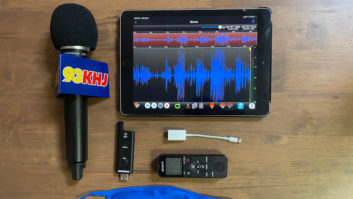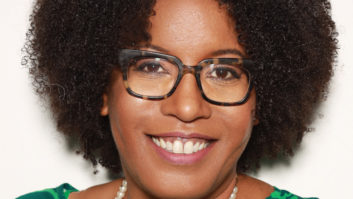Franklin Roosevelt’s administration was only weeks old when a newspaper reporter asked him how he intended to handle the Depression, then in its third, devastating year.
When facing extraordinary circumstances, Roosevelt said, “It is common sense to take a method and try it. If it fails, admit it frankly and try another. But above all, try something!” He communicated this action plan to the nation over the radio, via the periodic broadcasts later famously known as his Fireside Chats. The nation listened, and although the Depression ground on for another six years, the relatively new medium provided an unparalleled conduit for reassuring the public throughout the crisis.
Now, more than 70 years later, radio remains a primary method for informing and entertaining the public. Broadcasters today, though, face their own extraordinary circumstances. Alternative delivery systems such as iPods, XM/Sirius and cellphones with MP3 players all add up to a competitive environment previously unknown to radio broadcasters.
HD Radio represents a viable response to that competition, but only if our industry exploits its advantages, even if only through the sometimes painful process of trial and error. In the end, how each broadcaster reacts to and harnesses this new technology for the benefit of its audience may well determine whether or not it is in business 10 years down the road.
Roosevelt intuitively knew that the best way to tackle his set of “extraordinary circumstances” was through experimentation. RW believes the same action plan must be adopted by broadcasters, as each tries to assess risk-vs.-reward in the emerging world of HD Radio.
The successful broadcaster will “try something,” as he or she attempts to convert IBOC from a technological capital expense, to an audience aggregator and revenue source. Many of these attempts will no doubt fail outright, some will limp along in search of audience acceptance and a few will flourish, making their stations financially successful into the next decades. Success will breed imitators, and in the cases of failure, the successful operator will “admit it frankly” and try something else.
In the end, the only real failure will be for the industry to squander this opportunity, by waiting for consumers to adopt the technology before it provides them with a demonstrable benefit.
FM stations can create that benefit by multicasting additional unique programming or totally new data services. We emphasize “unique” because simply adding “more of the same” will not be seen by the public as a compelling reason to adopt this new technology.
AM stations will at long last find themselves on a nearly equal footing, fidelity-wise, with FM, opening up programming options that AM operators thought gone forever.
The programming and ancillary revenue streams are, or soon will be, there to be mined. It only remains for the creative operator to identify and exploit them. RW urges broadcasters to explore the opportunities of HD Radio, even those that might seem outlandish. And more important, if those initial assumptions turn out to be false, then heed the “common sense” words of FDR, who was, after all, one of the first to really understand the power of radio to reach and inform the public.
— RW












